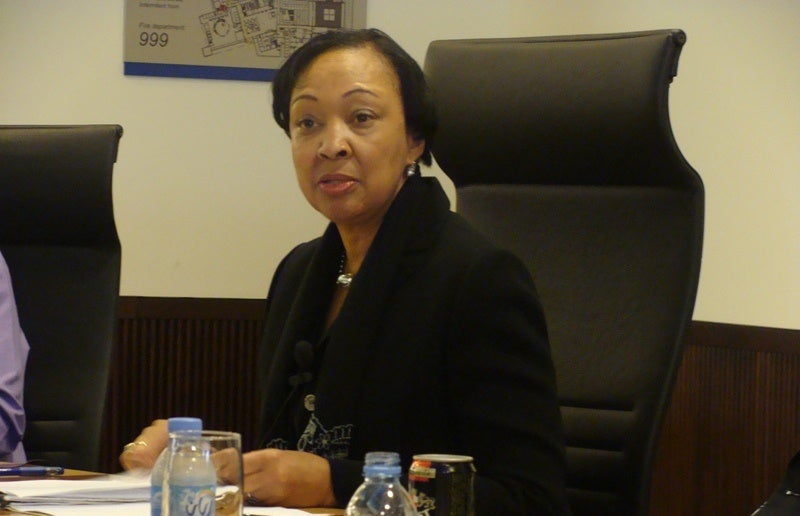The Kofi Annan Legacy for Africa

Georgetown University School of Foreign Service in Qatar (SFS-Q) on Wednesday held a ‘Luncheon Talk’ hosted by its Center for International and Regional Studies (CIRS) that centered on the legacy of former UN secretary general Kofi Annan’s initiatives in the African continent.
Led by Gwendolyn Mikell, a professor of Anthropology and Foreign Service at Georgetown University, the event’s focus was her research on Kofi Annan’s goal of bringing Africa to the center of UN dynamics during his tenure as UN secretary general from 1997-2006, and which examined the views and responses of constituencies at varying levels in the power hierarchy. The talk was titled, ‘The Kofi Annan Legacy for Africa’.
“The data gathered in the research demonstrated clearly that Kofi Annan was an advocate for two things: 1) For global responsibility to assist in removing crises that hindered the development of southern countries, such as those in Africa; and 2) for an African shift toward universal standards that would further their efforts at development,” noted Prof Mikell, who was asked by the UN to document – and critically analyze – the African initiatives set in motion by Annan during his tenure. Her research paper reflected Prof Mikell’s use of anthropological techniques to examine the dynamics of UN organization practices, inter-agency dialogues, policy construction, NGO discussions and policy implementation on African issues related to human rights, poverty and health, peace and conflict resolution, and governance during Kofi Annan’s tenure. Broadly, the study examined Annan’s initiatives in four areas: African human rights, peacekeeping/peace building, development and growth, and governance.
“Anthropological approaches, ethnographic and interview methodologies are perfect tools for delving deeper into the operations of international institutions like the UN. People who operate within these institutions are often aware that they are missing important information about social interaction and those anthropologists can help them discover this information, and how to utilize it,” she said.
“Who would have thought that African concerns about Kofi Annan’s ‘Africanity’ would have shaped the ways they responded to his economic governance initiatives in the mid-1990s. Who would have known that hybridity in a non-western secretary general would be extremely productive until the western powers of the P5 (permanent members of UN Security Council) took him to task for undercutting their desire for regime change in Iraq,” she added. Prof Mikell’s discussion also touched on Annan’s post-UN activism and how fractured the UN was after it became bogged down with power rivalries both within the P5 and between P5 and powerful African countries.
“Respondents (during the course of her research) stressed that he did not have an easy time of it, but that after 2001, the process of being UN secretary general moved him in the direction of greater understanding and identification with the African condition about which he had been such an advocate during his first term,” she said.
Prof Mikell is a preeminent Africanist. She was the director of the African Studies Program in the Edmund A. Walsh School of Foreign Service at Georgetown University (1996-2007); and senior fellow in African Studies at the Council on Foreign Relations from 2000-2003. Her research and writing have been focused on political and economic transitions in Africa, and on gender and peace building during African transitions.
The academic also engaged in a lively question and answer session with the audience, which was comprised of faculty staff and students. CIRS director, Mehran Kamrava said: “It’s an honor and privilege to host Prof Mikell – one of the most recognized Africanists. Secretary General Kofi Annan was an important figure and CIRS is delighted to further explore his legacy and analyze it in an academic forum.”